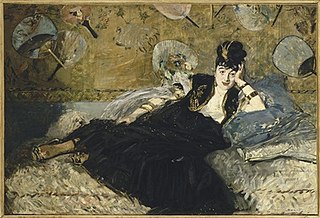The Peace of Callias is a purported peace treaty that supposedly was established around 449 BC between the Delian League and the Achaemenid Empire and ended the Greco-Persian Wars. The peace would then be the first compromise treaty between Achaemenid Persia and a Greek city.

Protagoras is a dialogue by Plato. The traditional subtitle is "or the Sophists". The main argument is between Socrates and the elderly Protagoras, a celebrated sophist and philosopher. The discussion takes place at the home of Callias, who is host to Protagoras while he is in town, and concerns the nature of sophists, the unity and the teachability of virtue. A total of twenty-one people are named as present.
Callias was an Ancient Greek statesman, soldier and diplomat active in 5th century BC. He is commonly known as Callias II to distinguish him from his grandfather, Callias I, and from his grandson, Callias III, who apparently squandered the family's fortune.
Hipponicus III was an Athenian military commander. He was the son of Callias II of the deme Alopece and Elpinice of Laciadae. He was known as the "richest man in Greece".
Callias was an ancient Athenian aristocrat and political figure. He was the son of Hipponicus and an unnamed woman, an Alcmaeonid and the third member of one of the most distinguished Athenian families to bear the name of Callias. He was regarded as infamous for his extravagance and profligacy.
Callias of Chalcis, son of Mnesarchus, together with his brother Taurosthenes, succeeded his father as tyrants of Chalcis. Callias formed an alliance with Philip of Macedon against Plutarch, tyrant of Eretria, with the view of extending his authority over the whole of Euboea, a design which, according to Aeschines, he disguised as a plan for uniting in one league the states of the island and establishing a general Euboean congress based at Chalcis.

Aeschines of Sphettus or Aeschines Socraticus, son of Lysanias, of the deme Sphettus of Athens, was a philosopher who in his youth was a follower of Socrates. Historians call him Aeschines Socraticus—"the Socratic Aeschines"—to distinguish him from the more historically influential Athenian orator also named Aeschines. His name is sometimes but now rarely written as Aischines or Æschines.

The orange-thighed frog is a species of tree frog native to a small area of tropical northern Queensland, Australia. It has been observed between 100 and 1500 meters above sea level. It is a green frog with distinctly orange eyes, and is very similar in appearance to the red-eyed tree frog.

Erebia is a Holarctic genus of brush-footed butterflies, family Nymphalidae. Most of the about 90–100 species are dark brown or black in color, with reddish-brown to orange or more rarely yellowish wing blotches or bands. These usually bear black spots within, which sometimes have white center spots.
Callias, sometimes called by the nickname Schoenion (Σχοινίων), was a poet of the Old Comedy.
Hermogenes was an ancient Athenian philosopher best remembered as a close friend of Socrates as depicted by Plato and Xenophon.
Callias was the head of a wealthy Athenian family.

Anne-Marie Gaillard, known as Nina de Villard de Callias, Nina de Callias or Nina de Villard, was a French composer, pianist, writer, and salon hostess.
Pareuxesta is a genus of picture-winged flies in the family Ulidiidae.

Neohesperilla xanthomera, the xanthomera skipper, is a butterfly of the family Hesperiidae. It is found in Australia in the Northern Territory, Queensland and New South Wales.

Erebia callias, the Colorado alpine, is a member of the Satyridae subfamily of the Nymphalidae butterflies. It is found in alpine areas of Wyoming and Colorado in the U.S. Rocky Mountains as well as various mountain ranges in eastern Asia.
Callia is a genus of longhorn beetles of the subfamily Lamiinae.
Callia axillaris is a species of beetle in the family Cerambycidae. It was described by Dalman in 1823. It is known from Brazil.

Nancy Fish Barnum Callias D'Orengiani, Baroness was an English socialite, daughter of a successful cotton miller and the second wife of P. T. Barnum, 40 years her senior. After the death of Barnum's first wife in 1873, they married the following year in both London and New York City. After his death in 1891, he left her a large annuity.







